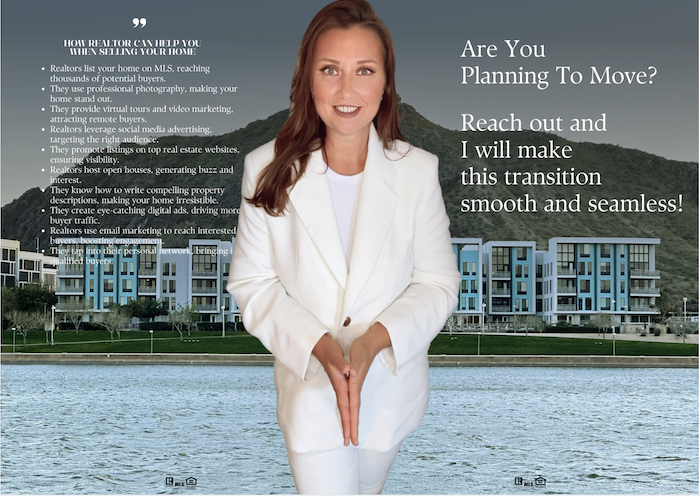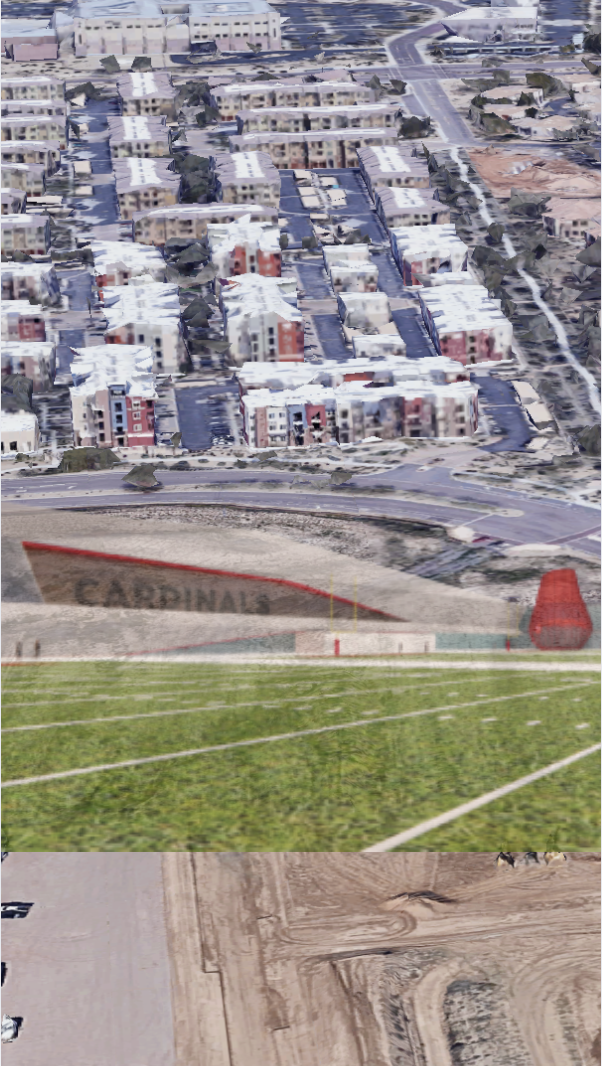The Mattel Adventure Park in Glendale, adjacent to the VAI Resort, blends immersive attractions tied to brands like Barbie and Hot Wheels. It represents a large experiential, tourism-driven real-estate anchor. Nearby hospitality, retail, entertainment real-estate may see uplift from increased visitation traffic. Local jurisdictions will face infrastructure demands (roads, parking, utilities). From a regulatory angle, permitting and event zoning will be important. In value terms, properties in surrounding districts may see revaluation linked to visitor amenities and foot traffic.

July 2025 commission actions advanced downtown medical and professional office rezonings, with current-case portals showing active intake and neighborhood engagement processes; concurrently, regional policy efforts like ADAWS were highlighted to address stranded projects caused by groundwater-based moratoria, particularly salient for rapidly growing suburbs including Queen Creek. Wealth views: steady entitlement flow supports pipeline continuity. Tax: incremental commercial and office uses diversify revenue. Regulatory: case transparency and outreach reduce friction. Value stability hinges on water-supply certainty.
Kidder Mathews reported Phoenix industrial construction “remains robust” with 11.9 million square feet in the active pipeline as of mid-year 2025. JLL’s Midyear 2025 data center report placed metro Phoenix No. 2 in North America for planned development as vacancy compressed to historically low levels near 2–3%. A regional developer also pitched a $33 billion data center complex, underscoring hyperscale interest in the I-10/Loop-303 corridors. For wealth portfolios, stabilized logistics assets along the West Valley spine add diversification to residential-heavy allocations. Property-tax budgeting and abatement structures remain important for build-to-core allocations. Local zoning and infrastructure coordination around power delivery and substation timing frame execution risk. Value durability benefits from diversified employer bases in aerospace, logistics, and cloud infrastructure. Sustainability considerations include grid capacity, heat-resilient design, and water-use strategies for evaporative cooling. Smart-city fiber and transportation investments raise corridor productivity and support valuation resilience.
In August 2025, Eloy’s median sale price was $300,000 (-8.3% YoY) with 74 median days on market and 12 sales. ZIP 85131 showed a $330,000 median (+5.6% YoY) with 113 days on market and 36 sales. Pinal County’s first-half taxes are due October 1 and second-half due March 1, guiding cash-flow timing. Arizona’s Assured Water Supply program requires a 100-year demonstration for new subdivisions in AMAs. The Post-2025 AMAs Committee is evaluating strategies after the current management period ends in 2025. An Ag-to-Urban groundwater-credit program established by SB1611 becomes effective September 26, 2025, to help sustain growth while protecting groundwater. ADWR has updated Phoenix AMA groundwater modeling and policy communications since 2023, shaping certificate reviews. Governor-backed legislation in 2025 sought broader rural groundwater protections, highlighting ongoing regulatory attention. Statewide, active listings and days on market have climbed, expanding buyer choice; Arizona’s median DOM was 72 days in August. Nationally, Redfin notes sellers outnumber buyers by roughly half a million, reinforcing negotiability. Phoenix-area CPI rose 0.9% over the two months ending August 2025, informing real income and rent assumptions. Wealth managers may find relative yields attractive versus metro cores at current price points. For taxes, the October/March cadence aids escrow planning. Legislative clarity on AAWS and credits supports underwriting discipline. Over a longer arc, policy-driven water assurance remains central to value stability. Inventory depth and measured growth favor a sustainability lens on landscaping and usage.
Banner Health has initiated construction on a new medical campus at Power and Germann roads in Mesa, representing a $400 million investment. The facility will feature a 120-bed hospital and an adjoining medical office building, expected to create approximately 1,000 new healthcare jobs upon completion in 2026. This expansion will meet the city’s rising population demands, supporting health-sector growth while enhancing regional tax revenue through increased employment and property values. The project aligns with state healthcare expansion policies and leverages Banner’s reputation for operational excellence. Designed with LEED standards in mind, the development aims for energy efficiency and low water use, enhancing its long-term value proposition. The project team includes architects from HKS, Inc., with Layton Construction as the builder, both of whom have delivered similar large-scale facilities for Banner throughout Arizona. Community feedback points to broad support for improved access to care and economic stimulus.
In May 2025, Scottsdale City Council approved an updated green building code mandating solar-ready roofs, water-smart landscaping, and stricter envelope performance for all new residential and commercial projects beginning January 2026. These requirements are projected to reduce energy use intensity by 18% over the first 10 years of occupancy. For wealth and estate managers, these efficiency standards offer enhanced resale positioning and may increase eligibility for federal and state tax credits. The regulatory change aligns with statewide moves to strengthen resilience against water shortages and urban heat. Compliance tracking will be embedded in digital permitting, supporting Scottsdale’s broader smart-city agenda and ensuring durable, future-proof asset value.
Between January and June 2025, Maricopa County issued 1,240 new commercial construction permits, up 13% from the same period in 2024 per CoStar and county records. The largest clusters are in Surprise, Goodyear, and Tempe, with a notable focus on mixed-use and logistics centers exceeding 100,000 sq ft. This pipeline indicates broad-based confidence among institutional investors, providing portfolio diversification opportunities in income-producing assets. The surge impacts depreciation schedules and may affect 1031 exchange strategies for taxable events. Cities have responded with expedited plan review protocols and sustainability scorecards, while the 2024 legislative session’s SB1298 incentivizes energy-efficient build-outs. The long lead times and infrastructure upgrades embedded in these projects offer durable value stability and climate resilience.
According to the ARMLS June 2025 data, active residential listings in Greater Phoenix climbed to 18,221, marking a 17% year-over-year increase and the highest June count since 2020. Median sales prices held steady at $445,000, reflecting ongoing resilience despite mortgage rates hovering near 6.9%. For high-net-worth individuals, this uptrend in supply offers diversified entry points for asset allocation and estate planning. Tax-wise, property valuations remain stable, keeping ad valorem liabilities predictable for the upcoming cycle. Local ordinances, including recent Chandler and Gilbert amendments on short-term rentals, reinforce compliance vigilance. The relatively slow pace of new construction and sustained buyer demand support future-proof value stability. Municipalities in Phoenix, Scottsdale, and Tempe continue smart-city pilot programs to digitize permitting and promote solar-ready developments, enhancing long-term appeal.



 Arizona Cardinals’ $136 Million “Headquarters Alley” Project: How a 217-Acre Deal Will Redefine North Phoenix by 2028
Arizona Cardinals’ $136 Million “Headquarters Alley” Project: How a 217-Acre Deal Will Redefine North Phoenix by 2028 Public Safety as an Asset Class: The New Scottsdale AdvantageIn today’s Smart City economy, safety isn’t simply about peace of mind—it’s becoming a measurable, marketable asset class. Scottsdale is proving that public safety can be engineered into the fabric of
Public Safety as an Asset Class: The New Scottsdale AdvantageIn today’s Smart City economy, safety isn’t simply about peace of mind—it’s becoming a measurable, marketable asset class. Scottsdale is proving that public safety can be engineered into the fabric of
 Scottsdale’s $6M Dog Oasis: Inside the Ambitious Thompson Peak Bond ProjectIn the fast-growing northern reaches of Scottsdale, a new amenity is on the horizon that promises to reshape both community life and property appeal: an off-leash dog park at Thompson Peak Park
Scottsdale’s $6M Dog Oasis: Inside the Ambitious Thompson Peak Bond ProjectIn the fast-growing northern reaches of Scottsdale, a new amenity is on the horizon that promises to reshape both community life and property appeal: an off-leash dog park at Thompson Peak ParkNice to meet you! I’m Katrina Golikova, and I believe you landed here for a reason.
I help my clients to reach their real estate goals through thriving creative solutions and love to share my knowledge.

